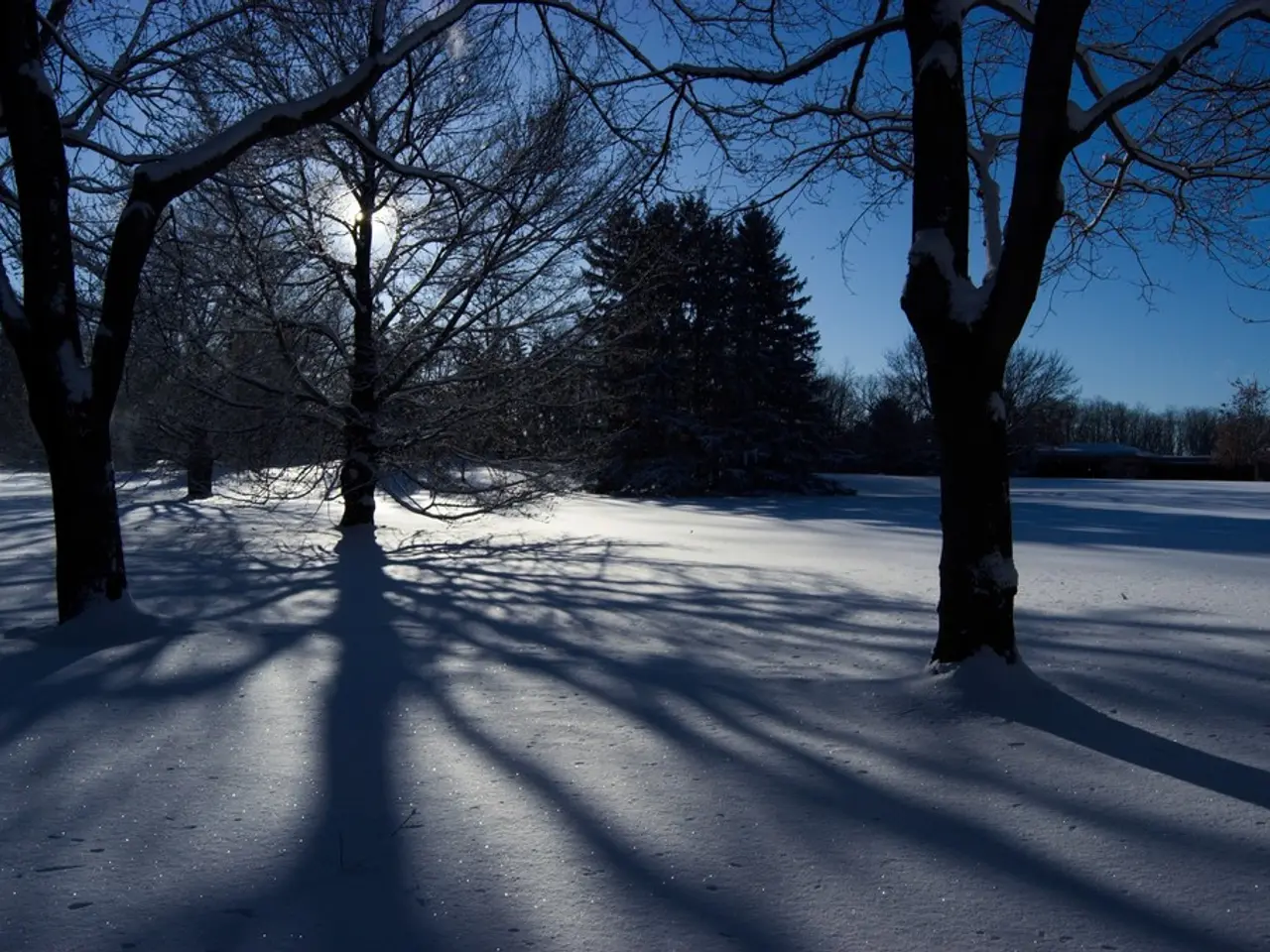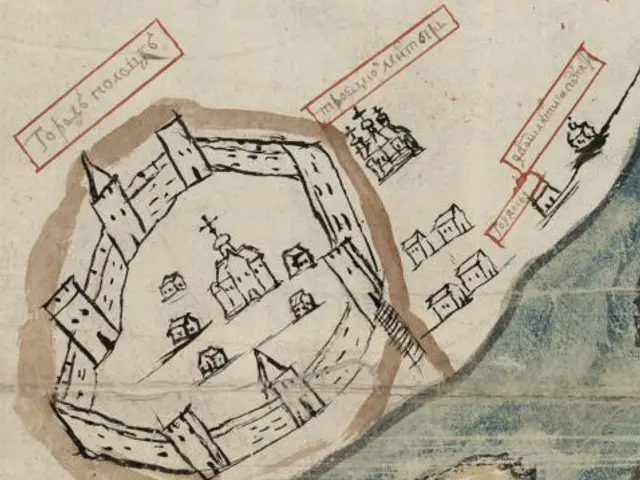Struggles for Christmas Trees: Pondering Beyond Fir and Spruce - Challenging circumstances for the holiday pine
Brandenburg Christmas Tree Farm Adapts to Extreme Weather and Heat-Resistant Species
The Kraemerwaldhof farm in Brandenburg, Germany, is facing new challenges as extreme weather events become more frequent due to climate change. This year, the farm is focusing on growing heat-resistant species like Douglas firs, as traditional Christmas tree species like Norway spruce face growing challenges in the region.
The farm, which covers approximately five hectares, is currently growing Nordmann firs, which take around six to seven years to mature into Christmas trees. However, the pines are not currently thinking about Christmas due to the hot weather conditions. At present, the pines on the farm are standing at 35 degrees Celsius in the field.
Drought, frost, and heavy rain can all have a significant impact on Christmas tree farming. Drought stresses Christmas trees by reducing soil moisture necessary for growth, potentially causing slower growth, needle loss, or increased vulnerability to pests. Frost can damage new shoots or roots, especially if freeze events occur unexpectedly late in spring or early fall. Heavy rain may lead to waterlogged soils, increasing root rot risks and damaging fragile seedlings.
To adapt to these challenges, growers in Brandenburg might consider more heat- and drought-tolerant species, such as the Douglas fir. The Douglas fir is increasingly appreciated for its resilience and good needle retention. However, the idea of palms is less typical in this temperate region, as palms generally require subtropical climates; their cultivation outdoors in Brandenburg would not be viable without protected environments.
Last year, a meter of Christmas tree from the farm cost approximately 23.50 euros. Prices for this year's Christmas trees have not yet been set but an increase is possible due to the increased focus on heat-resistant species and the challenges posed by extreme weather.
As the farming industry adapts to the changing climate, further localized studies or industry reports would clarify specific impacts and adaptation strategies in Brandenburg and other regions. Jokes have been made about the possibility of planting palms as Christmas trees due to their profitability in Brandenburg's sandy soil, but a shift toward palms in open fields is unlikely due to climatic constraints.
Read also:
- Amidst India's escalating climate crisis, transgender individuals continue to persevere
- Germany's three-month tenure under Merz's administration feels significantly extended
- Governing body allegedly persists in enjoying vacation time amidst Spain's highest danger level due to fires, claims Feijóo
- United Nations Human Rights Evaluation, Session 45: United Kingdom's Statement Regarding Mauritius' Human Rights Record








